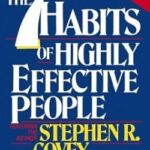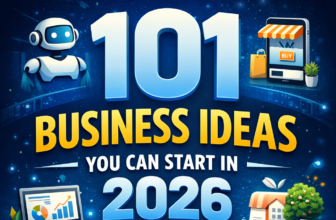
Entrepreneurship is more than just starting a business; it’s a mindset and a way of life that involves constant learning, adaptation, and innovation. The journey of an entrepreneur is often marked by a relentless pursuit of new opportunities, overcoming challenges, and the quest for growth. However, this path can also be filled with uncertainty, self-doubt, and obstacles that may seem insurmountable. In such times, it’s crucial to seek inspiration and guidance from those who have walked the path before.
Books, with their wealth of knowledge and wisdom, serve as invaluable companions in this journey. They provide insights from successful entrepreneurs, lessons learned from failures, and strategies for building and scaling businesses. Whether you’re a seasoned entrepreneur looking to sharpen your skills or a budding startup founder seeking direction, the right book can be a game-changer. It can ignite your passion, fuel your ambition, and equip you with the tools you need to navigate the entrepreneurial landscape.
In this blog post, we delve into five books that are essential reads for anyone looking to boost their entrepreneurial spirit. These books cover a range of topics, from building a startup and creating disruptive innovations to understanding the core principles of leadership and business excellence. Each book offers unique perspectives and actionable advice that can inspire you to think differently, challenge the status quo, and pursue your entrepreneurial dreams with renewed vigor. So, grab a cup of coffee, sit back, and let’s explore these literary gems that have the power to transform your entrepreneurial journey.
1. “The Lean Startup” by Eric Ries
Overview: “The Lean Startup” by Eric Ries revolutionizes the way entrepreneurs approach building businesses and products. Ries advocates for a methodology centered around creating a minimum viable product (MVP) to test hypotheses and validate ideas with real customer feedback. This approach minimizes waste and accelerates the learning process, enabling entrepreneurs to make informed decisions and pivot when necessary.
Key Takeaways:
- Build-Measure-Learn Feedback Loop: The core of the Lean Startup methodology is the build-measure-learn feedback loop. Start by building a basic version of your product (MVP), measure its performance in the market, and learn from the data collected to make improvements.
- Validated Learning: Instead of relying on assumptions, use real data and customer feedback to validate your business ideas and make strategic decisions.
- Pivot or Persevere: Be ready to pivot your strategy if the initial idea doesn’t work, while keeping the end vision intact. This flexibility is crucial for adapting to market demands and achieving success.
Impact on Entrepreneurs: “The Lean Startup” equips entrepreneurs with a scientific approach to building businesses. By emphasizing experimentation and validated learning, it helps reduce the risks associated with launching new ventures. Entrepreneurs can innovate more effectively, ensuring their ideas resonate with their target audience and have a higher chance of success.
2. “Zero to One: Notes on Startups, or How to Build the Future” by Peter Thiel with Blake Masters
Overview: In “Zero to One,” Peter Thiel, co-founder of PayPal and Palantir, shares his unique perspective on innovation and building companies that create new value. Thiel argues that entrepreneurs should strive to develop monopolies by offering unique products or services that cannot be easily replicated. This book challenges conventional thinking and encourages entrepreneurs to think big and aim for groundbreaking innovation.
Key Takeaways:
- Vertical Progress vs. Horizontal Progress: Thiel distinguishes between vertical progress (creating something entirely new) and horizontal progress (copying existing solutions). Entrepreneurs should focus on vertical progress to drive true innovation.
- Monopolies: The most successful companies are those that create monopolies. By offering a unique product that dominates its market, entrepreneurs can achieve lasting success.
- Contrarian Thinking: To identify opportunities that others miss, entrepreneurs must think differently and challenge conventional wisdom.
Impact on Entrepreneurs: “Zero to One” inspires entrepreneurs to pursue bold and innovative ideas. Thiel’s insights encourage a mindset of thinking differently and aiming to create significant, lasting value. This book is a call to action for entrepreneurs to push the boundaries of what is possible and make a meaningful impact.
3. “Start with Why: How Great Leaders Inspire Everyone to Take Action” by Simon Sinek
Overview: “Start with Why” by Simon Sinek explores the concept of the “Golden Circle” and the importance of starting with the “why” behind your business. Sinek argues that great leaders and companies inspire others by clearly articulating their purpose and vision. This approach fosters loyalty and motivates people to take action.
Key Takeaways:
- The Golden Circle: The Golden Circle consists of three layers: Why (purpose), How (process), and What (product). Starting with the “why” helps to create a strong foundation and guide all business decisions.
- Inspire Action: Leaders who communicate their vision and purpose effectively can inspire employees, customers, and stakeholders to rally around a common cause.
- Build Trust: Establishing trust and loyalty is crucial for long-term success. Staying true to your purpose and values helps build a strong, supportive community.
Impact on Entrepreneurs: “Start with Why” helps entrepreneurs clarify their purpose and communicate it effectively. By starting with “why,” entrepreneurs can build stronger connections with their audience, inspire loyalty, and create a lasting impact. This book is a valuable guide for developing a purpose-driven business that resonates with people.
4. “The Hard Thing About Hard Things: Building a Business When There Are No Easy Answers” by Ben Horowitz
Overview: In “The Hard Thing About Hard Things,” Ben Horowitz, co-founder of Andreessen Horowitz, shares his experiences and the lessons he learned from building and managing successful companies. Horowitz provides practical advice on tackling the most challenging aspects of entrepreneurship, from making tough decisions to leading through crises.
Key Takeaways:
- Embrace Challenges: Building a business is inherently difficult. Entrepreneurs must be prepared to face and overcome obstacles.
- Decision-Making: Making tough decisions with limited information and uncertain outcomes is a critical skill for entrepreneurs.
- Leadership: Effective leadership is essential, especially during times of crisis. Maintaining a strong company culture and leading by example are crucial for long-term success.
Impact on Entrepreneurs: “The Hard Thing About Hard Things” offers a realistic view of the entrepreneurial journey, highlighting the importance of resilience and adaptability. Horowitz’s insights and anecdotes provide valuable guidance for navigating the toughest challenges in business, making it an essential read for any entrepreneur.
5. “Good to Great: Why Some Companies Make the Leap… and Others Don’t” by Jim Collins
Overview: “Good to Great” by Jim Collins explores why some companies transition from being good to great while others do not. Collins and his research team identify key factors that contribute to sustained excellence and long-term success. The book provides a framework for achieving greatness in business.
Key Takeaways:
- Level 5 Leadership: Successful companies are often led by Level 5 leaders who possess a blend of humility and fierce resolve.
- Hedgehog Concept: Companies should focus on what they can be the best at, what drives their economic engine, and what they are deeply passionate about.
- Flywheel Effect: Building momentum through consistent, incremental progress is more effective than making drastic changes.
Impact on Entrepreneurs: “Good to Great” provides a framework for achieving sustained success in business. Collins’ research-based insights help entrepreneurs understand the critical factors that drive excellence and how to implement them in their ventures. This book is a must-read for entrepreneurs looking to take their businesses to the next level.
Final Thoughts
These five books offer a wealth of knowledge, inspiration, and practical advice for entrepreneurs at any stage of their journey. By exploring the principles and insights shared by these authors, you can enhance your entrepreneurial spirit, refine your strategies, and increase your chances of success. Whether you’re just starting or looking to take your business to the next level, these books will provide you with the guidance and motivation needed to thrive in the ever-evolving world of entrepreneurship.
Additional Tips for Boosting Your Entrepreneurial Spirit
- Stay Curious: Continuously seek new knowledge and stay open to learning from various sources.
- Network: Build relationships with other entrepreneurs, mentors, and industry experts to gain insights and support.
- Take Risks: Embrace calculated risks and learn from failures to grow and innovate.
- Stay Resilient: Cultivate resilience to navigate the ups and downs of the entrepreneurial journey.
- Maintain a Positive Mindset: Stay positive and focused on your vision, even in the face of challenges.
By incorporating these practices and immersing yourself in the wisdom of these books, you can foster a strong entrepreneurial spirit and achieve lasting success in your business endeavors.




















